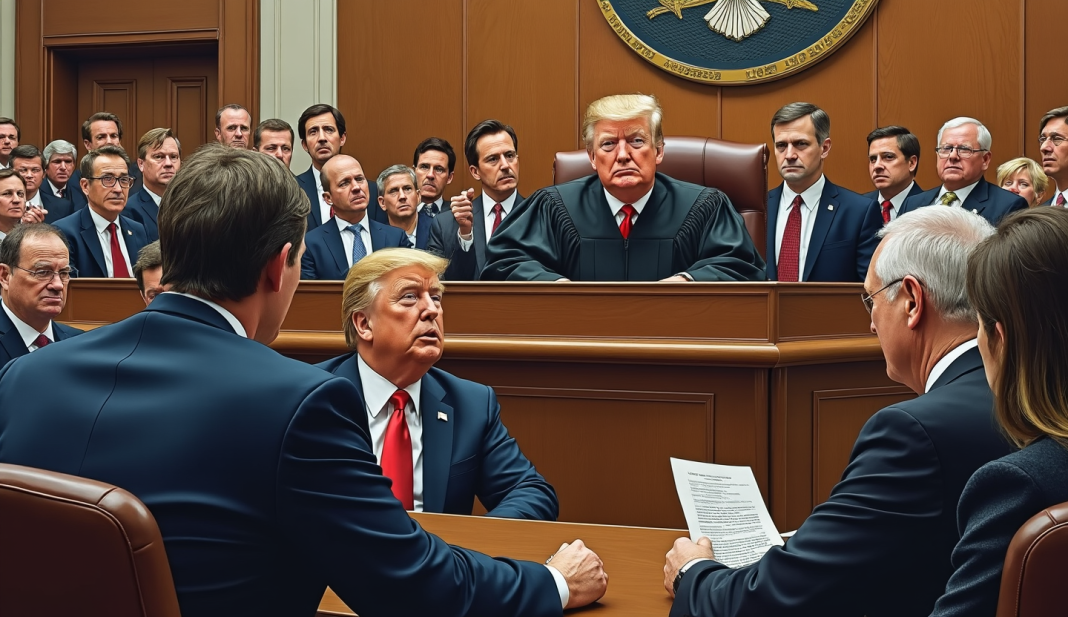Recent developments have seen a federal judge halting President Trump’s government worker buyout plan, putting a temporary pause on the administration’s efforts to offer buyout incentives to federal employees. This decision comes amidst a backdrop of ongoing legal challenges and debates surrounding the potential implications of such a policy.
According to reports from BBC, the judge’s ruling has raised questions about the legality and fairness of the buyout offers for federal workers. The program, which aimed to incentivize voluntary departures from the federal workforce, has faced criticism for its potential impact on government operations and services.
As per NBC News, the temporary block on Trump’s federal employee buyout program reflects the complexities and contentious nature of the policy. The decision to pause the buyout offers highlights the need for further examination and discussion on how best to manage the federal workforce and ensure the efficient delivery of government services.
Moreover, as reported by CNBC, the judge’s ruling has sparked debate among different stakeholders, with some supporting the buyout program as a cost-saving measure while others raise concerns about its potential impact on federal employees and the overall functioning of government agencies.
The Legal Challenge and Court Ruling Halting the Plan
Recently, a federal judge has temporarily blocked President Trump’s government worker buyout plan, which aimed to offer buyout packages to federal employees in an effort to reduce the size of the federal workforce. The ruling comes as a significant setback for the Trump administration’s efforts to streamline the government workforce.
The legal challenge to the buyout plan was based on concerns raised by various stakeholders, including unions representing federal workers and advocacy groups. These groups argued that the buyout offers could potentially lead to unfair treatment of certain employees and undermine the stability of the federal workforce.
As per NBC News, the judge’s decision to halt the buyout program reflects the court’s recognition of the potential implications of such a significant policy change. The ruling highlights the importance of ensuring fairness and due process in any efforts to restructure the federal workforce.
This development underscores the ongoing debate over the role of government workers and the need to balance efficiency with employee rights and job security. It remains to be seen how the Trump administration will respond to this legal challenge and what implications it may have for future workforce policies.
Implications and Potential Outcomes of the Court Decision
The recent court decision to halt President Trump’s government worker buyout plan has significant implications for federal employees and the administration. The buyout program aimed to incentivize federal workers to voluntarily leave their positions, potentially leading to a reduction in the federal workforce.
One potential outcome of the court decision is the preservation of job security for federal employees who may have felt pressured to accept buyout offers. This decision could protect the livelihoods of thousands of workers who rely on their government jobs for stability and financial security.
Moreover, the court’s ruling could signal a broader legal challenge to the President’s efforts to reshape the federal workforce through buyout programs. This decision may set a precedent for future cases involving the administration’s labor policies and could impact the way government employee benefits are handled in the future.
As per BBC, the temporary block on Trump’s federal employee buyout program highlights the importance of judicial oversight in ensuring fair labor practices and protecting the rights of workers. The outcome of this legal battle could have far-reaching implications for the relationship between the government and its employees.
Overall, the court decision to pause Trump’s buyout offers for federal workers has raised important questions about labor rights, government policies, and the role of the judiciary in safeguarding the interests of workers.

